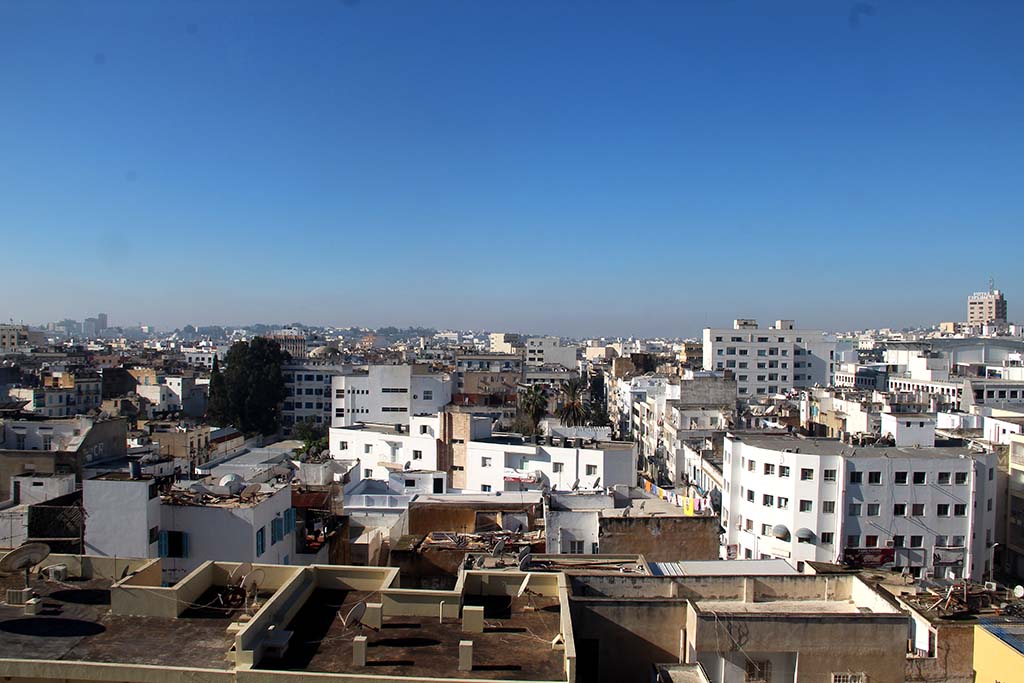Black migrants in Tunisia: between state racism and taking to the sea
Over the past few months, the racist and divisive rhetoric expressed by Tunisia’s president has sparked a series of violent attacks against black communities and migrants. As those most marginalised within the black community bear the brunt of these attacks, civil society is stepping up to advocate for their rights and provide protection.

Racism has always been an issue in Tunisia, as in many countries in the region. However, overt state racism, backed by a populist discourse of conspiracy theories, is a new phenomenon. The past few months, we have witnessed racist campaigns and attacks against sub-Saharan migrants in Tunisia on social and regular media and by certain political parties. Moreover, police have conducted arbitrary arrests of hundreds of sub-Saharan migrants and refugees.
In an unforeseen escalation on February 21st, president Kais Saied announced a crackdown on illegal immigration and made the remark that sub-Saharan migrants were changing Tunisia’s racial makeup towards becoming predominately black and African at the expense of Tunisia’s Arab-Muslim identity. He consequently ordered security forces to stop illegal immigration and expel migrants without residency permits.
Unprecedented wave of racist attacks
The president’s speech inflamed existing racist sentiments and fuelled an unprecedented wave of racism. Sub-Saharan communities, migrants and refugees, whether holders of residency permits or cards proving their refugee status, have been the subjects of police raids and arbitrary arrests. Mobs of Tunisian citizens also attacked them, and many were evicted from their apartments and sacked from their precarious jobs. Some have had their houses attacked and furniture burnt down, making many afraid to leave their homes to buy food, attend classes, or pray in churches or mosques. Black Tunisians were also attacked, harassed, and targeted.
In many cases, migrants ended up in detention centres as per administrative orders—even when they had been freed by judges after appearing in court. The situation at those centres, which the government perceives as reception centres, is worrisome. For example, at the Ouradia Center for the Reception and Orientation of Migrants in the southern suburb of Tunis, migrants’ fundamental rights are unmet and they are subjected to police violence.
To escape this limbo, hundreds of migrants have resorted to their embassies requesting support for immediate repatriation. Meanwhile, many others have taken to the sea in deadly attempts to cross the Mediterranean, hoping for a better life in Europe.
Migrant women amongst those most vulnerable
Throughout this racist wave, migrant women have been subjected to sexual harassment, sexual and gender-based violence, threats of rape, and physical attacks. Being pregnant or with small children did not shield them from these assaults. Some were forced to sleep outside for several days in the cold with their small children. A significant number of those women had already endured severe traumas—research has shown that many west African migrant and refugee women in Tunisia have arrived through Libya where they were subjected to systematic torture, abuse, and rape. As for those who have arrived by plane through visas that allowed them to stay for three months, they have accumulated debt towards the Tunisian state, which imposes penalties of around $25 for each overstayed month, making them feel that crossing the Mediterranean in small boats in the cheapest option.
Tunisia’s civil society did not stand silent. The Anti-Fascist Front, a collective of citizens, organised a protest denouncing fascism, xenophobia, and racism. In addition, organisations such as The Kvinna till Kvinna Foundation’s local partner organisation Beity, provided protection and assistance services. This includes legal aid, medical assistance, psycho-social support, food and clothes distribution, and shelter for the homeless. Citizens also volunteered to buy groceries for migrants stuck at their homes and offered medical support in their sit-in in front of the International Organisation for Migration.
Civil society steps up to offer protection
Thanks to civil society’s efforts, Tunisia is currently the only country in the MENA region that has an anti-racism law: the 2018 law against racial discrimination allows victims to seek redress from perpetrators of verbal and physical racism. However, the law has so far not achieved its objectives as vulnerable victims do not have the luxury of seeking justice through it, especially in the absence of a national strategy for combatting racism. Moreover, the Tunisian Nationalist Party has recently circulated a petition for the amendment of said law and for the deportation of sub-Saharan migrants. Without a national strategy to combat these issues, and in light of the current economic and political crisis, the situation will only worsen for black migrants, refugee communities and black Tunisians.
Despite the fear and uncertainty that has gripped the country, two brave women who have received help from one of our partner organisations have come forward to share their harrowing experiences of racism in Tunisia. Listen to their stories in the video below.
The Kvinna till Kvinna Foundation has supported women’s rights in Tunisia since 2016 and established an office in Tunis in 2018. Learn more about our work in Tunisia.